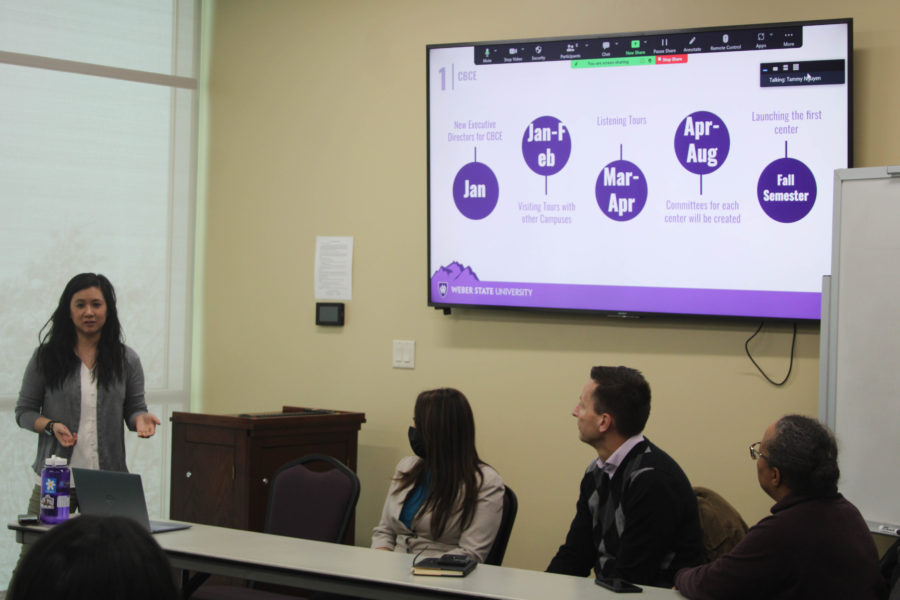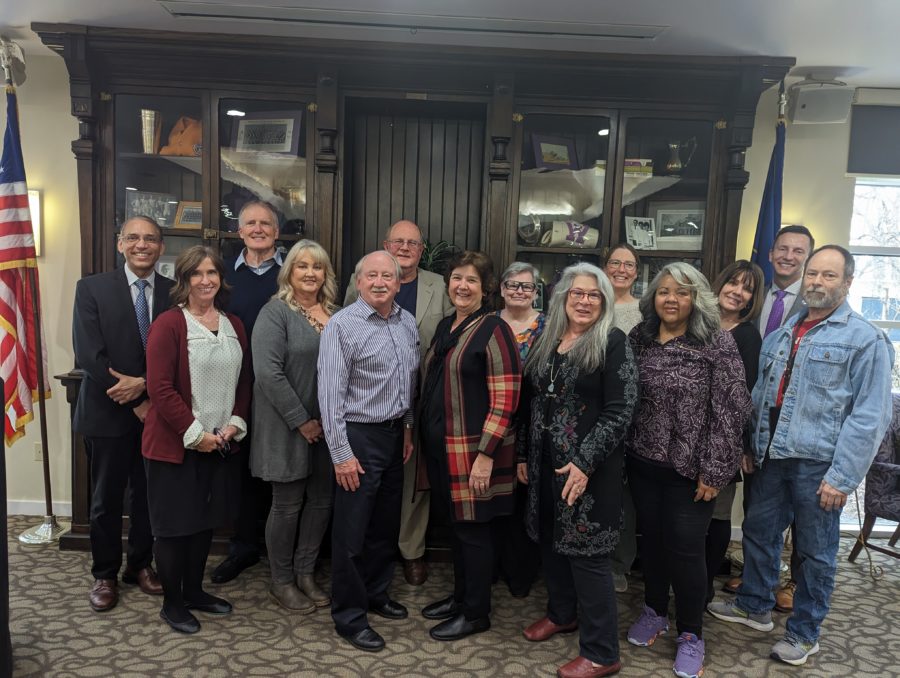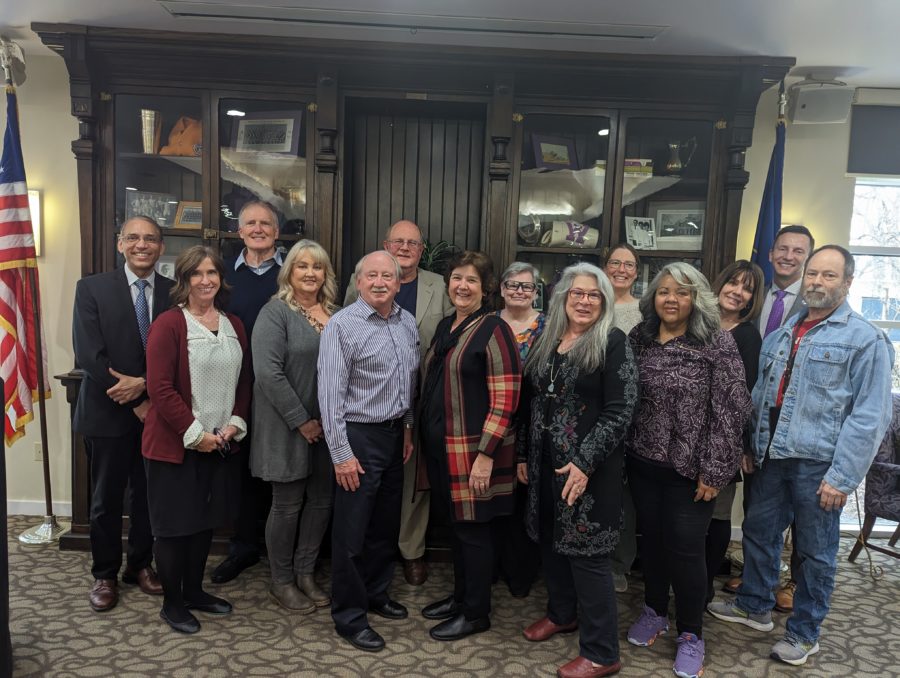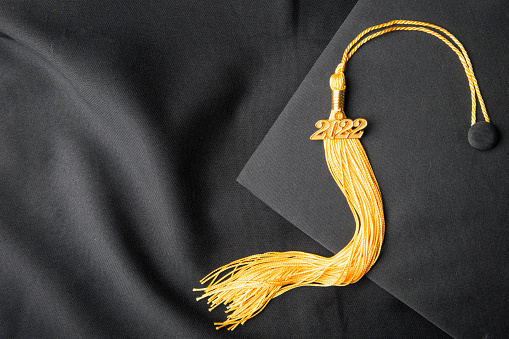While some Weber State University students will be greeting their families, who have possibly traveled distances to see their graduation ceremonies, a different graduation story is unfolding for two graduates this December. Heidi Gordon-Schnabel and her daughter Bree Lujan will be graduating together in social work after taking almost all of their classes together.
“We have different minors, and so she took some of my minor classes and I took some of her minor classes,” Gordon-Schnabel said.
Their journey together began when Gordon-Schnabel dropped out of eighth grade at age 15 after finding out she was pregnant.
“I didn’t even get to attend my eighth-grade graduation,” she said. “I was told I was not allowed to come.”
By the time she gave birth to Lujan at age 16, she lived on her own. She then was hired in a local school district in California, where she worked in the kitchen, but she said she always craved more. She moved with her daughter to Oregon, where she met her husband. She said her husband inspired her to get her GED, which kicked off her journey to WSU.
“When we got my scores, they’re like, ‘Do you want to go to college?’” Gordon-Schnabel said. “And I’m like, ‘I don’t have time for college, are you kidding me?’ About two years later, I enrolled in Eastern Oregon University.”
While at EOU, Gordon-Schnabel took mostly online classes. She said she didn’t have a lot of experience with computers at that point. When it came time for her to write a paper, she started to write it in her Yahoo e-mail account because that was all she knew. Lujan, a high school student at the time, caught her doing this and quickly taught her how to use Microsoft Word. When her husband found a job opportunity in Utah, Gordon-Schnabel transferred to WSU to study nursing. Lujan stayed behind to study at EOU, but soon joined her mother at WSU.
Gordon-Schnabel had to take a leave from school when her husband became sick, but upon returning, she realized nursing wasn’t exactly what she was looking for.
“Then I finally realized why I was doing nursing,” she said. “It was basically to do social work with a bigger paycheck, because all through rotations, patient teachings is what I enjoyed the most — making sure that patient was going to be OK when they went home.”
When Lujan transferred to WSU, she was a child and family studies major, but she took the social work introduction class with her mother and found what she’d been looking for.
“I kind of was lost,” Lujan said, “and taking my (general) classes and getting bad grades and not really caring. And then when she came and found the social work program and I took the intro class, I was kind of like, ‘Oh, I could do this. I could do pretty much anything with this degree.’ That’s kind of when it started, and my grades improved.”
Lujan said that, as a child, she didn’t really think about college that often. Her mother said this was probably because they didn’t know anybody who had been to college. After taking their first class together in the social work program, they continued to take every course required of the major together. Most students don’t have their parents in class with them, but Lujan said she appreciates their connection and that no one has a relationship like they do.
“Most of the time I enjoy it,” Lujan said, “especially, like, when she brings me lunch and drinks and reminds of what needs to be done.”
Both Lujan and her mother have high GPAs.
“I started pushing her and, you know, bragging about my grades,” Gordon-Schnabel said.
Lujan said the idea of going to graduate school helped motivate her to bring her grades up to where they are now. Both Lujan and Gordon-Schnabel have applied for graduate school.
“I could stop at the bachelor level and be OK,” Gordon-Schnabel said, “but I don’t want her to. So I’ll go to grad school to ensure she does.”
Lujan agreed that she probably wouldn’t go if her mother didn’t go also. She also said she probably wouldn’t be graduating this December if there hadn’t been someone there to push her.
Although it was convenient for Lujan and Gordon-Schnabel to have classes together because they could work on projects together and buy just one set of books, there was one thing they both were very conscious about.
“I never wanted to be accused that we were cheating, because there were two of us,” Gordon-Schnabel said. “That was very important to me that nobody ever thought we were doing each other’s work. I wanted everybody to know that we both achieved this.”
Steve Vigil, the field placement director for social work, became a little emotional talking about the journey he had experienced with both women. He said he enjoyed watching them encourage each other, and although their journey at WSU is coming to an end, there is no reason they shouldn’t go on to further education.
“They are just very open people,” said Kerry Kennedy, another of Gordon-Schnabel and Lujan’s professors.
Kennedy said that, because of this openness, the students can see that other people have been through struggles, which makes them more willing to share their own.
Gordon-Schnabel said she wants to bring hope to pregnant teens by sharing her story. She said she wants those girls to know they can still go to school, and she claims that if she can do it, anyone can. She said having her daughter saved her life and put her on the right path that led her to the first graduation ceremony she has gotten to participate in.
“I think it makes graduation more special,” Gordon-Schnabel said about graduating with her daughter.














